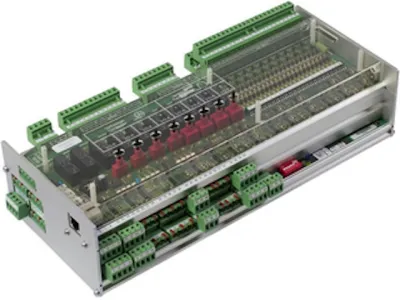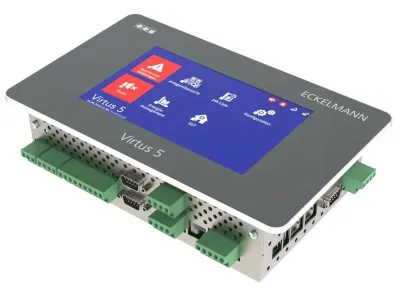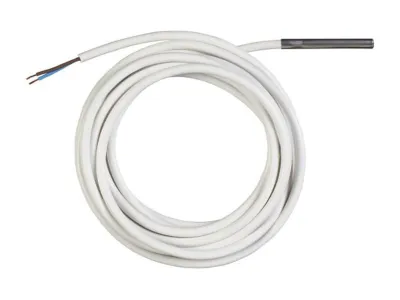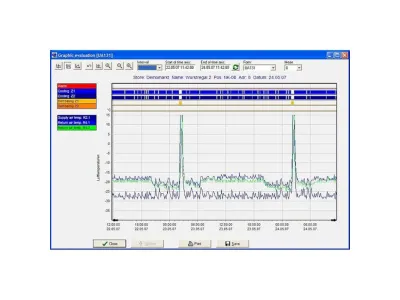Compound control for refrigeration systems VS3010
Compound control for refrigeration systems
The E*LDS system offers different compound controls for controlling and monitoring refrigeration systems: the basic model VS 3010 and the compact low-cost version VS 300 for use in standard compound refrigeration systems, the type VS 3010 BS for booster satellite systems and the FS 3010 for brine and cold water systems.
Modern transcritical refrigeration systems with CO 2 (R744) as refrigerant can be optimally controlled with the VS 3010 CT. Eckelmann also offers suitable solutions for cascades , for example with R744 and R134a. E*LDS supports all common, natural and synthetic.
The compound control is used for compound systems with normal cooling and compound systems with deep-freezing. By using SIOX expansion modules, up to 12 compressor stages and condenser fan stages can be operated with a compound controller.
Regulation and control ensure minimal energy consumption and reduced operating costs thanks to modern technology. Load shedding management and suction pressure optimization are part of the standard range of functions. A wide range of configuration and setting options make operation and maintenance of the compound systems easier.
The network control is operated via the system control center or an additional operating terminal. A laptop or PC can also be used with the LDSWin software for convenient parameterization and optimization.
Optimum control of the compressor output increases energy efficiency
A measure of the energy efficiency of a refrigeration system is the difference between the evaporation and condensation temperatures. This so-called temperature spread should be as small as possible so that the quotient of compressor and cooling capacity, the COP value, is as large as possible.
The second important variable besides the evaporation temperature is therefore the condensation temperature . Modern network controls adapt the compressor output to the current refrigerant requirement of the refrigeration points, among other things by intelligently controlling the drive speed. Reducing the condensation temperature by 1 Kelvin results in energy savings of up to 3 percent.
An enthalpy-based control and the setpoint shift of the evaporation pressure (p 0 ) and the condensation pressure ( pc ) increase energy efficiency and ensure optimal subcooling of the refrigerant . Thermodynamic losses due to the formation of so -called flash gas in the refrigerant lines are minimized.
In systems with combined heat recovery , the Eckelmann network controllers can also be used to regulate this interface to the refrigeration cycle.
- Adaptive and weather-dependent control of the suction pressure
- Enthalpy-controlled control
- Load shedding management to reduce power spikes
- Control of the condensing pressure via step, speed and combination control










